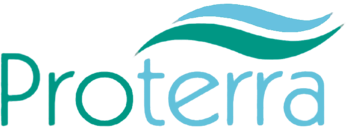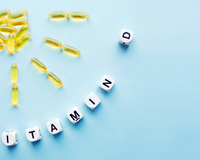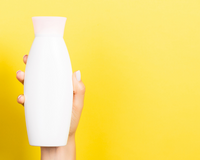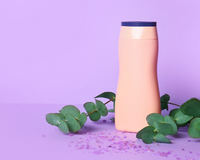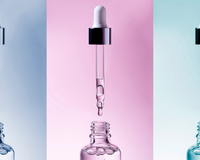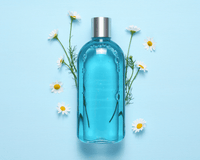Cruelty Free Black Hair Care Products
When you buy cruelty free black hair care products, you not only save innocent animals from pain, but you also help cut down on the waste that comes from testing on animals. One of the best ways to improve your beauty routine is to do this.
As we grow as a company, we're always trying to be more open and mindful of the environment. Our recent hard work has paid off, and we're thrilled to say that Strands is now Leaping Bunny certified!
Black hair looks good whether it's straight, curly, or braided. Wet hair and gentle care are the keys to healthy, beautiful hair. If you don't have these, your black hair can get dry and break. Taking care of black hair takes a little more work, but the results are soft, silky, and healthy.
Do you need a long list of hair care brands to find out if they don't test on animals? You're in the right spot. Pay attention to the symbol next to each brand name on this list. It shows all of the brands in our database that are categorized as hair care brands. This means that they are experts in hair products, whether they are cheap ones from the drug store or expensive ones from a salon.
What Are Cruelty Free Black Hair Care Products?
A cruelty-free brand is one that has said they never test on animals, and neither do their suppliers or any other third parties. This is true not only for finished products but also for the things that go into them. We also make sure that these brands aren't sold in stores in places where animal testing is required. Leaping Bunny is an international seal of approval that proves a company doesn't test on animals at any stage of making a product. This includes all parts of the supply chain, from the people who make the ingredients to the company's own lab.
For a company to be certified, they must show proof that they have never tested on animals and agree to have a third party check their supply chain. Consumers can also feel safe knowing that all certifications must be renewed every year. Consumers today know that testing on animals is out of date and not necessary. Leaping Bunny says that there are "enough existing safety data and in vitro alternatives" to make animal testing for these products unnecessary. Animal testing is still done, which is sad because it is relatively cheap.
Why Should You Choose Cruelty Free Black Hair Care Products?
Many product claims like "cruelty-free" or "not tested on animals" only refer to the finished product, but a lot of animal testing happens at the ingredient stage or by a third party. Consumers can get very confused by these claims.
Every one to two weeks, you should wash your hair. The more you wash your hair, the more moisture you take away from it. This makes hair dry and breakable. You should wash your hair every 7 to 10 days, but you can get away with washing it only once every 14 days. This will help stop dryness and buildup of products. If you can't find shampoo and conditioner for ethnic hair, try using a moisturizing shampoo for dry hair. Then, use a conditioner that adds moisture to your hair. If you have to wash your hair more often, mix your shampoo with water so that it is half shampoo and half water.
Cruelty Free Black Hair Care Routine
You might want to wash your hair every 3 to 5 days with just conditioner. This practice is also called "co-washing." It will help keep your hair moist and easy to style. Co-washing is great for curly hair because it keeps the curls less frizzy, more defined, and better hydrated. You can use a natural oil of your choice to help seal in even more moisture.
Use a deep conditioning mask once a week to twice a month to take things up a notch. Don't put conditioner on your scalp; instead, put it on the ends of your hair. If you put conditioner on your scalp, your hair will look greasy. It will also make your strands fall. Use a conditioner that moisturizes and has light essential oils. Oils like grape seed oil are easier for hair to take in than products like lanolin, which can clog hair follicles and make hair feel heavy. Lightweight oils will keep your hair moisturized and shiny without weighing it down.
Don't use things with silicones and sulfates in them. Silicones are great for making hair smooth and soft, but the only way to get rid of them is with sulfates, which are a harsh cleaner that makes hair dry. If you don't get the silicones out of your hair the right way, they will build up and make your hair look dull, greasy, and thin.
Hair Styling Tips
You don't have to use silicones to make your hair soft and smooth. Instead, you can use things like nourishing masks and coconut oil. You can easily wash these products out of your hair, and they won't dry or break it. Corporations use the word "natural" in a very loose way. The orange flavoring in an orange soda is natural because it used to be a part of a fruit. High fructose corn syrup is "natural" in the same way that petrolatum is.
Use a wide-tooth comb to carefully comb your hair. Start at the ends of your hair and work your way up; never comb down from the roots. Don't use brushes on your hair because they will only make it frizzy. Lastly, don't comb your hair every day; use your fingers to untangle it when you need to. If you comb your hair too much, it will break off.
Before you detangle, make sure your hair is just a little bit wet. Wet hair is very fragile, so if you just washed it, let it dry a little before doing anything else. When you blow-dry your hair, you might want to use a comb attachment. Let your hair dry a little on its own, then use a comb attachment on your blow dryer to gently dry your hair. This will cut down on the pulling and tugging that can cause things to break. Attachments for combs can also help tight-coiled natural hair dry faster.
